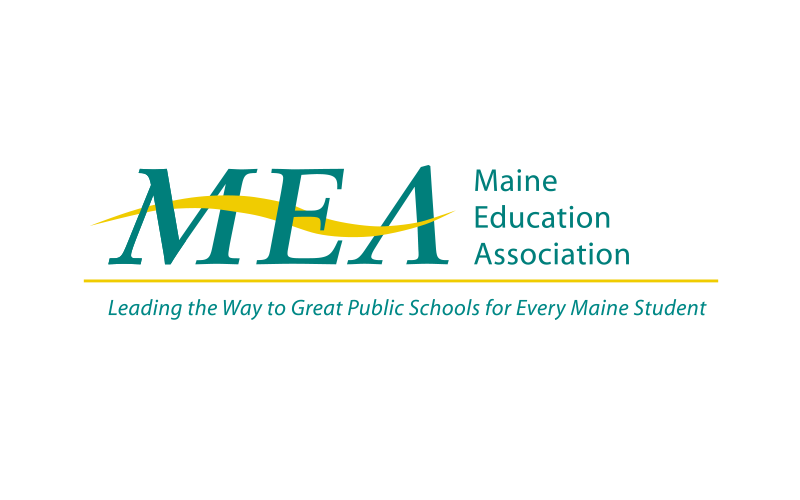Teaching with Technology during COVID-19:
Best Practices to Take Care of Ourselves and Our Students
We’re living and working in unprecedented times, and it’s hard to know what to do and what not to do regarding distance learning and posting on social media during the extended school break. Here are some helpful tips from your colleagues at MEA, who are working to provide you with supportive information and tips to keep yourself not only informed, but also healthy and in good standing with your district and students during this time.
Ten ways to take care of ourselves, each other, and our students as we engage on online platforms during distance learning:
1. Know your employer’s rules for online engagement and follow them at all times. Most employers have policies in place to define what is allowable on work computers and networks. In addition, employers may have policies that describe appropriate and inappropriate online interactions with students and families. Re-familiarize yourself with these policies and follow
them at all times. If you are concerned that your employer does not have policies to provide you with sufficient guidance to work with technology under these evolving circumstances, please inform your UniServ Director.
2. Be aware of the professional online presence you project. Whichever online learning platform you are using, give yourself time to learn it, be present at all times when you’re on it, and minimize distractions and personal interruptions. Being professional in an online learning platform means not eating, drinking, or multitasking; placing yourself in a neutral, professional space; dressing in professional clothing; minimizing all personal interruptions; and always speaking, typing and posting with the same professionalism you have in all of your interactions with students, families, and other members of the school community.
3. Ensure student privacy. This includes making sure that you are engaged in online instruction in a private space and also making sure that no application you use is set to ‘record’ while you are using it (many applications such as ZOOM may automatically record your session unless you specifically tell it not to record). Do not send your students to websites or social media appsthat are not approved by your employer, as unapproved websites may gather personallyidentifiable information about students. Check with your employer if you have questions about maintaining student privacy or if they have a list of allowable Apps and websites that meet FERPA guidelines. If you have additional concerns, contact your UniServ Director.
4. Maintain your own online privacy in your interactions with students. Make all of your private accounts private and establish professional accounts on all platforms and applications that you need for work. While ensuring that your students are not being recorded in online formats, seek the same for yourself. If your employer expects your online interactions to be recorded in ways that you believe may violate your collective bargaining agreement, contact your UniServ Director. Recognize, however, that when using an employer-provided network or computer an employee does not have a right to privacy.
5. When selecting materials to use in online instruction, adhere to all copyright laws. Members should consider copyright issues in online instruction just as they would in face-to-face instruction. While a ‘fair use exception’ allows copyrighted materials to be used without permission in many educational circumstances, this allowance is not absolute. Good information for public school teachers, including examples of what qualifies as fair use, is available from the Library of Congress.
6. Commit to creating a positive community online. It is important for your students to feel connected to you and each other during this time. Stay positive about all your students and be patient with their progress. They’re learning as they go, just as you are.
7. Communicate patience and encouragement. Be encouraging of colleagues who have had to learn online options quickly, sometimes without a lot of tutorials. Be patient with parents who are dealing with stressors professionally and personally as well as with the added pressure of helping their students with online assignments.
8. As much as is reasonable, focus on instruction. Students may need reassurance from us now, and some acknowledgment of the changes that all of us are experiencing may be very valuable. However, too much conversation might upset students with anxiety disorders or students who are seeking stability during unstable times. Reach out to your administration and/or pupil services colleagues if you feel you could benefit from additional guidance on educating during a time of uncertainty. The U.S. Centers for Disease Control and Prevention also provides helpful tips to communicate with children about COVID-19.
9. Don’t forget to put your own oxygen mask on first. This means to, first and foremost, stay home and follow guidelines from the Centers for Disease Control and Prevention andMaine Department of Health and Human Services. Then, create a daily schedule for yourself that includes downtime. Intentionally seek out socialization by calling old friends, facetiming people to express gratitude, or taking a walk to greet neighbors (from a distance) who are outdoors. Ensure you are getting sufficient exercise, eating well, and avoiding excessive media exposure. And if you have any free time, try something new! Necessity is the mother of invention, after all! Download some free books, practice online yoga, watch online tutorials to learn a new hobby, create the ultimate playlist, or take an online museum tour in some far-flung city!
10. Check Maineea.org for up-to-date information and professional support related to the COVID-19 pandemic. The Association is keeping the website up to date with the most current information it receives from the Department of Education and State leaders. In addition, you can also find information about changes at the federal level. MEA has also compiled a list of resources for its members to help you navigate this unprecedented time. And don’t forget the folks at NEA; they have put together a great list of resources for online learning during school building closures and have additional information in NEA Today!
MEA recommends Local Associations work with your employer and collaborate on an agreement addressing various issues related to the pandemic, including telework, to ensure the parties are in agreement and the common agreement is communicated to all staff. For more information, Local leaders should contact their UniServ Director.
Stay Safe and Stay Healthy,
Grace Leavitt
MEA President




